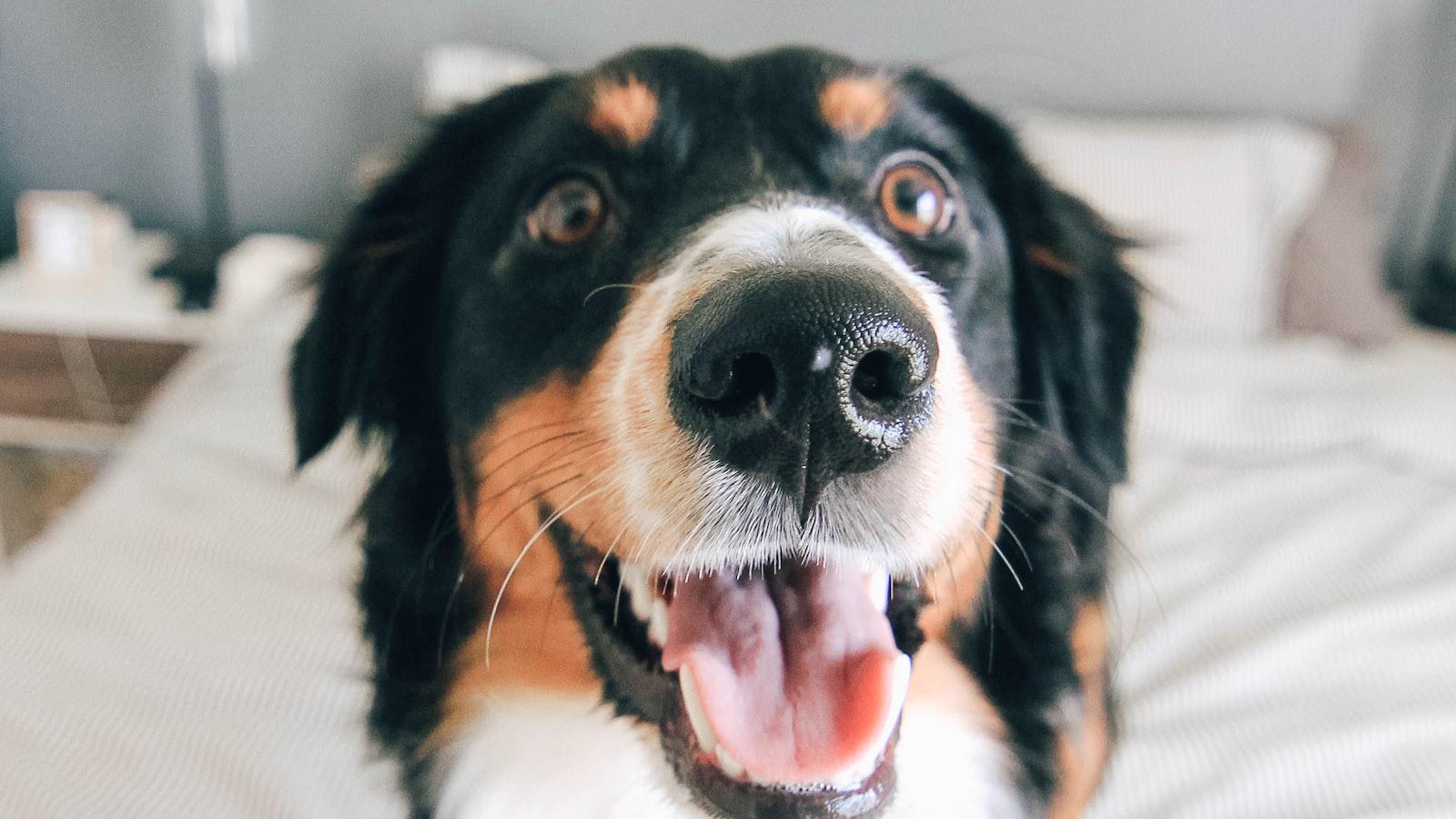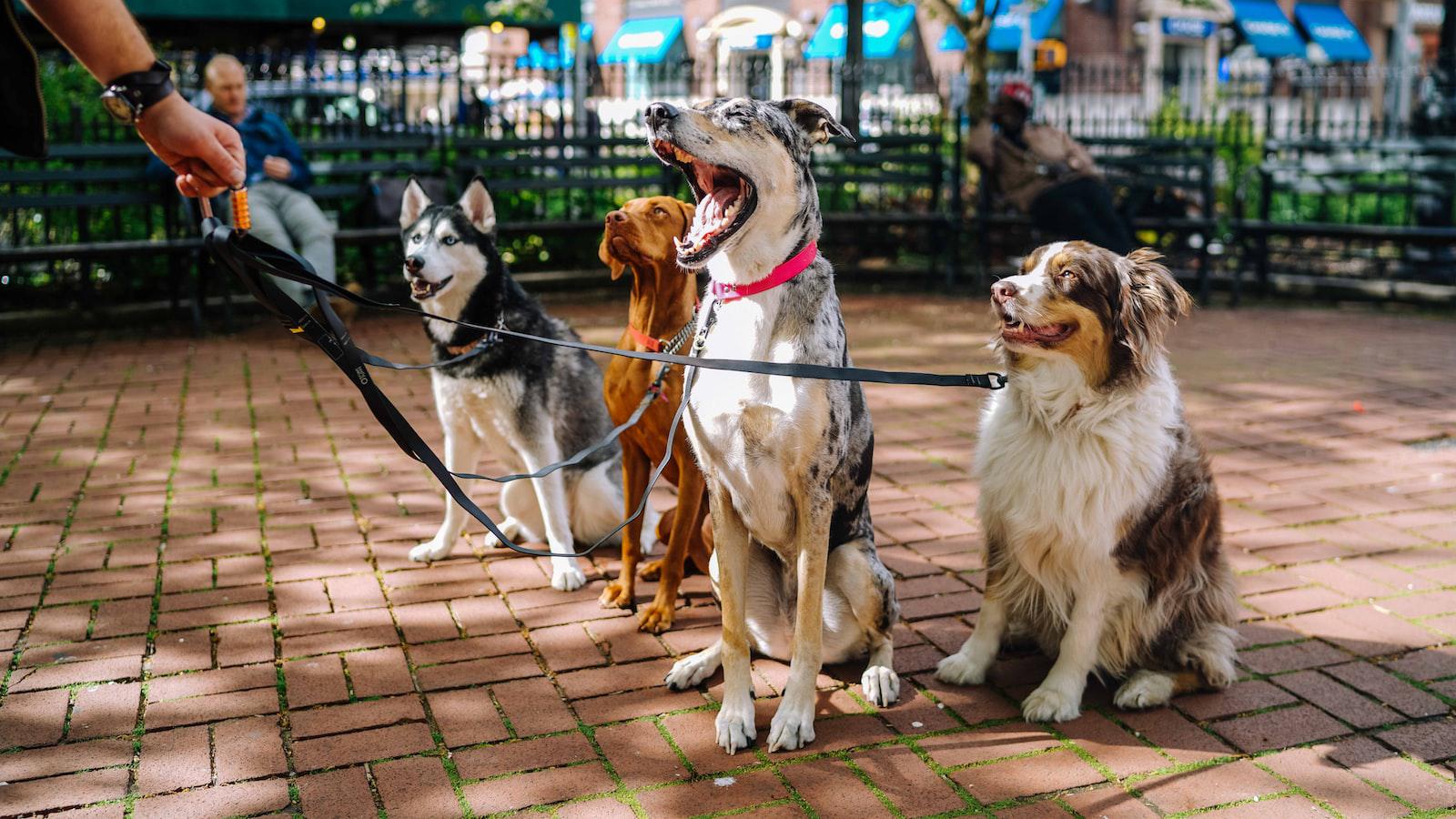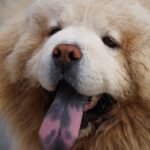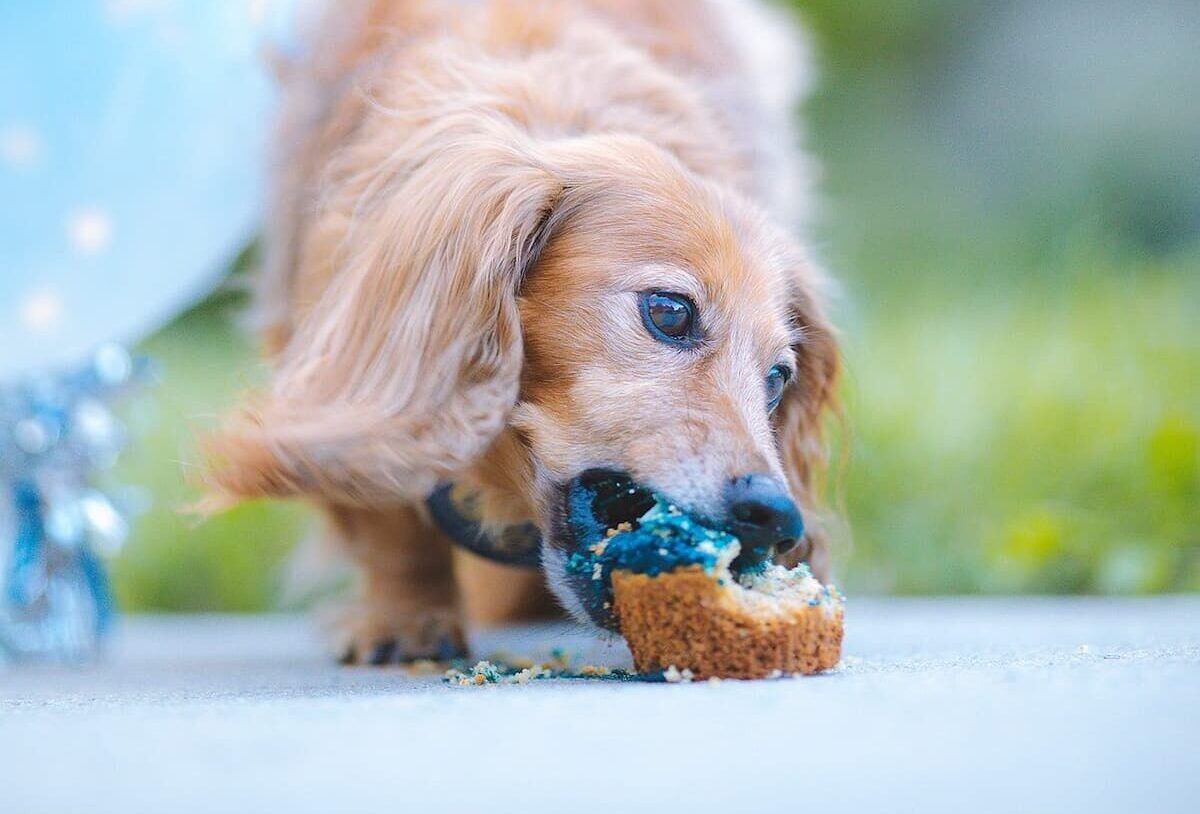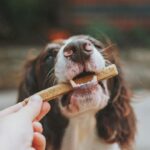You’re sitting on the couch, engrossed in your favorite TV show, when suddenly you notice your furry best friend slurping away beside you.
You glance over and wonder, “Why does my dog seem to swallow so much…is he okay?”
This article will help alleviate your worries and answer the question:
Why do dogs swallow a lot?
Why do Dogs Swallow a Lot? Reasons behind Excessive Ingestion
One thing we dog owners often notice is how our furry friends seem to have an endless appetite for swallowing everything in sight.
From the tiniest chew toy to random household objects, they just can’t resist the urge to gulp it all down.
But have you ever wondered why dogs have this insatiable need to swallow so much?
Let’s dig deeper into the fascinating reasons behind their excessive ingestion.
- Exploring: Dogs are natural explorers, and one of the ways they do this is by using their mouths.Just like how we touch and examine objects with our hands, dogs experience the world through their teeth.They use their mouth to grab, gnaw, and chew on various things in their environment.
This behavior can sometimes lead to swallowing objects accidentally, especially if they are particularly small or enticing.
- Boredom: Dogs are social animals that thrive on companionship and mental stimulation.When they don’t receive enough attention or exercise, they may resort to engaging in destructive behaviors, including excessive swallowing.It’s their way of coping with boredom.
Swallowing objects provides them with a temporary distraction and relief, even if it’s not necessarily the healthiest outlet.
- Anxiety: Anxiety is a common issue among dogs and can be caused by a variety of factors.Loud noises, separation from their owners, or changes in their environment can all trigger feelings of unease in our four-legged friends.This can lead to increased saliva production and frequent swallowing as a way to cope.
Additionally, when dogs are feeling anxious, they may resort to excessive swallowing as a way to cope with their stress.
It’s similar to how some people might bite their nails or fidget when they’re nervous.
- Stress: Just like us, dogs can experience stress in their daily lives.This could be due to a lack of exercise, a change in their routine, or even conflicts with other animals.When dogs are stressed, they may turn to behaviors like swallowing as a way to self-soothe and alleviate their anxiety.
If you notice your dog exhibiting this behavior, it’s important to address the underlying stressors to help them feel more relaxed and comfortable.
- Medical Conditions: Occasionally, excessive ingestion in dogs can be a symptom of an underlying medical condition.Some dogs may have a condition known as pica, where they compulsively eat and swallow non-food items.This behavior can stem from nutritional deficiencies, gastrointestinal disorders, or even certain medications.
If you notice your dog consistently swallowing large amounts of objects, it’s essential to consult with a veterinarian to rule out any underlying health issues and seek appropriate treatment.
Medical Conditions to Consider: Exploring Potential Health Issues
As mentioned above, excessive swallowing or gulping can be a sign of underlying medical conditions.
While an occasional gulp is normal, persistent or excessive swallowing might be a cause for concern.
Here are some possible medical conditions that could be the culprit behind why dogs swallow a lot:
1. Gastrointestinal Discomfort:
One possible explanation for your dog’s excessive swallowing could be gastrointestinal discomfort.
Conditions such as acid reflux, gastritis, or an upset stomach can make dogs swallow frequently.
Keep an eye out for other symptoms like vomiting, diarrhea, or loss of appetite, as these can indicate underlying gastrointestinal issues.
If you suspect your dog is experiencing discomfort, it’s best to consult with your veterinarian.
2. Dental Problems:
Another reason for dogs swallowing excessively could be dental problems.
Here are some dental issues that could lead to frequent swallowing:
- Tooth decay or cavities, which can make eating painful;
- Gum disease, leading to inflammation and soreness in the mouth;
- Foreign objects stuck between teeth or lodged in the gums.
Check your dog’s mouth for any signs of redness, swelling, or bad breath.
If you notice any abnormalities, it’s essential to schedule a dental examination with your vet and address any potential dental health concerns.
3. Foreign Object Ingestion:
One of the more serious reasons for dogs swallowing a lot is the ingestion of foreign objects.
Dogs are curious creatures and may sometimes swallow items like toys, bones, or even household objects accidentally.
This can lead to an obstruction in their digestive system, causing discomfort and excessive swallowing.
If your dog’s excessive swallowing coincides with symptoms like vomiting, loss of appetite, or abdominal pain, seek immediate veterinary assistance to rule out a potential foreign body ingestion.
4. Acid Reflux
Another common cause of excessive swallowing in dogs is a medical condition called acid reflux.
This occurs when the stomach acid flows backward into the esophagus, causing discomfort and an increased need to swallow.
If you suspect your dog may be dealing with acid reflux, it’s important to consult your vet for a proper diagnosis and treatment plan.
They may recommend dietary adjustments, medication, or lifestyle changes to alleviate the symptoms and reduce your pup’s swallowing episodes.
Could Your Dog’s Food be the Cause of Frequent Swallowing?
Not only can frequent swallowing be a cause for concern, but it can also be quite uncomfortable for our beloved pets.
While there can be various reasons behind this behavior, one factor that often goes unnoticed is their diet.
Here are some food-related reasons why your dog may be swallowing too frequently:
Ingredients Matter: The ingredients in your dog’s food can greatly impact their swallowing patterns.
Some dogs might have sensitivities or allergies to certain ingredients, causing discomfort in their throat or esophagus.
Common culprits include grains like wheat or corn, as well as certain proteins. If your dog frequently swallows after meals, it might be a good idea to review the ingredients in their food and consider switching to a high-quality, hypoallergenic or limited ingredient diet.
Remember to consult your veterinarian before making any changes to ensure the best outcome for your pup.
Size and Texture: Another dietary factor that can influence swallowing is the size and texture of the dog food.
Larger kibble pieces or hard chunks can be harder to break down, leading to swallowing difficulties.
On the other hand, if the food is too soft or mushy, it may not require much chewing and can be easily swallowed whole.
Finding the right balance is essential.
Opt for dog food with appropriately sized pieces that encourage chewing and promote proper digestion.
Consider moistening dry food with water to aid in breaking down the pieces, making it easier for your dog to swallow.
While there can be several reasons why dogs swallow frequently, it’s essential not to overlook the role that their diet plays.
By paying attention to the ingredients, size, and texture of their food, we can proactively address any potential issues that might be causing discomfort for our furry friends.
If your dog tends to swallow more when they’re in new environments, around loud noises, or during stressful encounters, it might be beneficial to help them relax with tools such as calming supplements, a comforting safe space, or even professional training.
FAQ
Q: What could be causing dogs to swallow frequently?
A: Well, one common culprit for excessive swallowing in dogs is anxiety or stress.
Just like humans nervously gulp when they’re on edge, dogs can exhibit the same behavior.
It could be a reaction to a new environment, loud noises, or even separation anxiety when their favorite humans aren’t around.
Q: Are there any medical reasons behind dogs swallowing often?
A: Absolutely! Dogs, like their human companions, can experience some medical issues that lead to frequent swallowing.
Gastrointestinal problems, such as acid reflux or ingestion of something irritating, may cause discomfort in their throats, prompting them to swallow more frequently.
If you notice persistent swallowing, it’s always wise to consult your vet.
Q: Can certain dog breeds be prone to swallowing more than others?
A: Interesting question! While excessive swallowing can affect dogs of any breed, some breeds tend to be more prone to this behavior.
Brachycephalic breeds (you know, the ones with smushed faces like Pugs and Bulldogs) often have shorter airways, which can lead to breathing difficulties.
Consequently, they may swallow more as a way to clear their throats or alleviate discomfort.
Q: Does drinking or eating too quickly have any connection to dogs swallowing excessively?
A: Spot on! Dogs that devour their food like it’s their last meal on Earth can indeed swallow more frequently. Rapid eating can lead to gulping down air along with their food, causing them to swallow excessively afterward.
Some dogs even display this behavior due to excitement, making their mealtime a wild, hurried affair.
Q: How can we help our dogs if they’re swallowing excessively due to anxiety?
A: The first step is to identify what triggers your dog’s anxiety.
Maybe it’s certain situations or noises that set them off.
Once you pinpoint the cause, you can work on desensitizing them through gradual exposure or providing a safe and calming space when anxiety strikes.
In severe cases, consulting a professional dog behaviorist might be beneficial.
Q: Are there any remedies or strategies to alleviate excessive swallowing related to medical conditions?
A: When it comes to medical reasons for excessive swallowing, your go-to person should always be your veterinarian.
They can diagnose any underlying medical issue and provide appropriate treatment.
Depending on the cause, your pup might need medication to soothe their acid reflux, dietary adjustments, or even surgery in more severe cases.
Q: Is there a way to discourage rapid eating and excessive swallowing during mealtime?
A: Absolutely! Numerous strategies can help slow down your furry friend’s eating habits.
Using feeding puzzles or interactive toys can make mealtime more engaging and force your pup to slow down.
You can also try feeding smaller portions more frequently or offering meals in a slow-feeder bowl designed to enforce healthier eating habits.
Q: Are there any instances where frequent swallowing might be something to worry about?
A: While most cases of excessive swallowing aren’t cause for alarm, there are instances when it’s essential to be vigilant.
If your dog’s swallowing is accompanied by signs of respiratory distress, vomiting, drooling excessively, or any sudden change in behavior, it’s vital to seek veterinary attention promptly.
Q: Can training or behavior modification help lessen dogs’ excessive swallowing?
A: Absolutely! Working with a professional dog trainer or behaviorist can be incredibly beneficial in curbing excessive swallowing caused by anxiety or rapid eating habits.
They can develop training programs tailored to your dog’s specific needs, helping them gain confidence, learn coping mechanisms, and modify problematic behaviors.
Patience and consistency are key when embarking on this journey.
Closing Remarks
From simple hunger to medical conditions, there can be a multitude of reasons why dogs swallow a lot.
Remember, it’s vital to pay close attention to your pooch’s eating habits and seek professional advice if you notice any unusual or concerning behavior.
Don’t hesitate to schedule a visit to the vet to rule out any underlying health issues.
In the end, our dogs rely on us to provide the best care possible.
By understanding their habits, we can help them lead happy and healthy lives.
After all, a happy dog is a playful dog! So next time you see your four-legged buddy swallowing a lot, remember to give them some extra love and maybe even a special treat!


